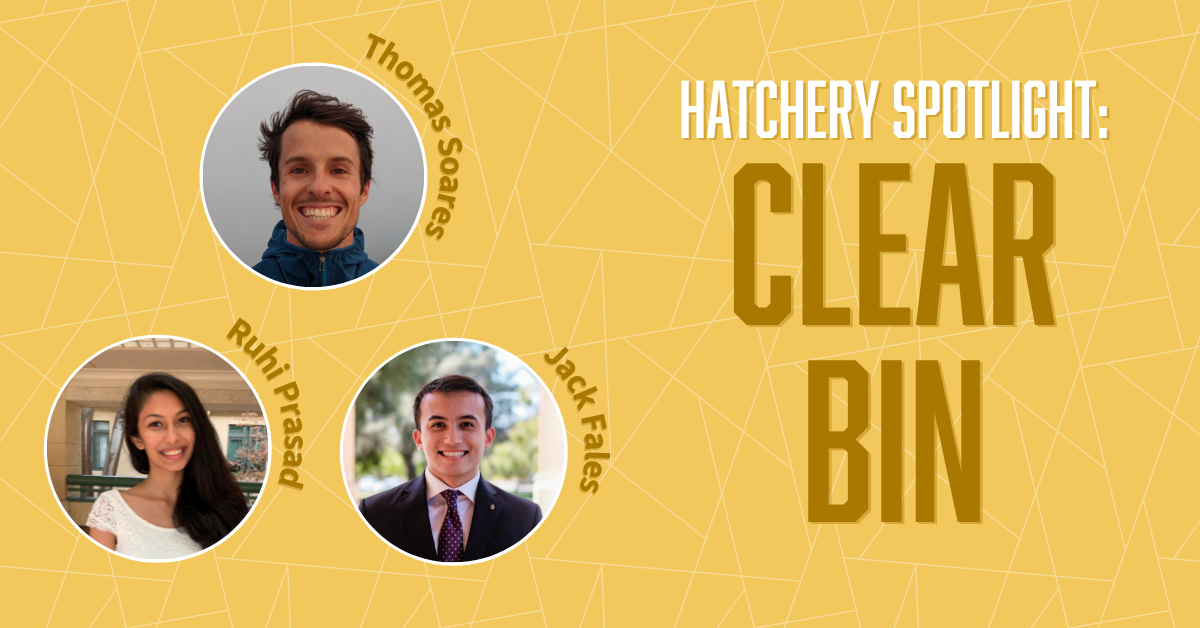Thomas Soares was “talking trash” when inspiration struck.
Soares wasn’t “talking trash” in the traditional sense. He was discussing the recycling industry and learning which materials are and are not recyclable. That is when he had the idea for Clear Bin.
Clear Bin is a mobile application working to reduce contamination rates for curbside recycling across the United States.
Curbside recycling is considered contaminated when a recycling collection contains materials “not accepted into residents’ curbside program” or acceptable materials with “unacceptable amounts of residue,” according to the Recycling Partnership’s 2020 State of Curbside Recycling Report. More than 30 percent of residential recycling is considered contaminated, according to the same report.
One contributing factor to this high contamination rate is residents not knowing which materials are and are not recyclable, Soares said. Clear Bin is attempting to resolve that issue.
Clear Bin users can take a picture of an item, and the app will inform them whether the material is recyclable or not. It also informs users whether the item is of acceptable quality, and if it needs to be cleaned, dried or otherwise altered before it can be recycled.
Soares, an architectural engineering senior, is working with computer science seniors Ruhi Prasad and Jack Fales, to build the Clear Bin app.
Soares is also working with the Center for Innovation and Entrepreneurship (CIE) Hatchery, an on-campus resource designed to help Cal Poly students develop their startup ideas. The Hatchery connected Soares to the resources needed for both Clear Bin’s development and his own professional development.
“The Hatchery has definitely given me a lot of confidence to be able to put myself out there,” he said.
Students do not need any prior business or entrepreneurship experience before joining the Hatchery. The program provides plenty of opportunities for students like Soares, who started Clear Bin with no formal business education or experience, to learn about entrepreneurship in ways that appeal to them.
“The Hatchery has done a great job of making this more about problem solving,” Soares said. “From an engineering perspective, I love the rational, practical thought, and the Hatchery has been able to break down entrepreneurship like this, in a way that I enjoy.”
The Clear Bin team is currently focusing on app development and working towards launching a program. Soares hopes to eventually help communities throughout the United States reduce their waste.
“There is a big divide with the understanding of what is and is not recyclable,” Soares said. “If we’re able to communicate and work with people and haulers and recycling companies across the United States, that’s when I’ll be able to sleep at night.”
